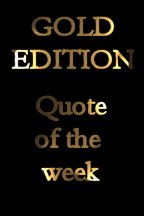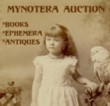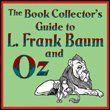|
|
|


|
|

|
|
by Craig Stark
#130, 22 Decber 2008
|
|
Question: when scouting, what book do you come across more than any other? Easy. The Bible. By far. It can pop up anywhere, especially at thrift shops, church sales and estate sales - in fact, even when there are no other books in sight, there's still a good chance you'll come across a Bible. Somewhere. But - how many booksellers actually sell them? Hard to say, but from what I've observed, it ain't many, despite the fact that it can be a consistently (and sometimes very) profitable niche.
Why is this? Here are a few possible reasons.
1. Most Bibles aren't worth much.
You could say this about almost any genre. Books that have significant value are always in the minority, but there are many, many Bibles out there that are definitely worth bothering with, new and old like, and it isn't hard to find them if you know what to look for.
2. It's easy to get burned buying antique Bibles, especially those massive, family tomes published in the latter part of the 19th century.
Yes, they're impressive, aren't they? And just about everybody thinks they're valuable, estate liquidators included. That's why they're usually over-priced - often $50, $100 or more. Unless you know your stuff, you're not going make money rolling the dice with stakes this high, and you'll probably lose. Many Bibles from this period may struggle to get as high as $20 or $30 on, for example, eBay. There are reasons for this, and I'll get into them later in this article. But there are also reasons why you should buy antique Bibles - if the price is right - because some can get into three figures and more.
3. Some sellers are uncomfortable selling religious stuff.
I'm not sure how widespread this is, but it's definitely a factor, just as it is in other genres. Far be it from me to tell anybody to get over it, but if you do feel this way, it be might helpful to remind yourself that it's one thing to sell a book - promote it for sale - another thing entirely to promote its content. We're booksellers, not preachers.
4. There are so many different kinds of Bibles that it's difficult to keep them all straight, let alone remember which ones are worth something.
True, there are dozens of different translations, an endless variety of formats, bindings, etc.; and even content can vary dramatically from one Bible to another. Simply trusting your instincts to pick up one that will deliver a good profit can be tough. However, it most definitely is possible to make sense of things, impart some much-needed categorical order, and learn to be a smart Bible buyer. Pretty painlessly, I think. This can make a big difference in a bookseller's mission to sell higher dollar books because you'll be adding 100s of new possibilities to your book buying repertoire.
As usual, flashpoints play into this, but you'll also need a working knowledge of Bibles for identifying items of value. And, for marketing purposes, you'll have a much better chance of finding your buyer if you know exactly what to include in your description.
Purchase this and other issues of the Gold Edition
here.
|
|







|
|
|


